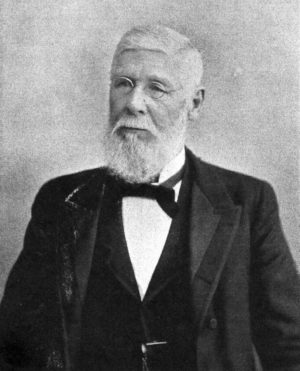The TV game show, To Tell The Truth, has three contestants who have a special skill or unusual occupation, and a panel asks questions to guess who is telling the truth. We now have a similar show going on in national politics, only we already know who is not telling the truth.
So many lies have been told that they have become like weeds. We need a Taxonomy of Lies, modeled on the Linnaean hierarchy, to key them out.
KINGDOM: Myths Facts
PHYLUM: Confirmation Omission
CLASS: Intention Inadvertent
ORDER: Confusion Clarification
FAMILY: Gratuitous Necessary
GENUS: Harmless Malicious
SPECIES: Smart Stupid
The Kingdom of Myths are special lies, describing things that are hard or impossible to describe with any combination of facts, such as creation stories or moral parables. Myths are supported by faith, belief and feelings.
Facts are dependent on consensus and general agreement as to the units of measurement, but have an objective, measurable quality.
Some people rely on how they feel; others prefer to measure.
[InContentAdTwo] Many lies are hybrids of the two Kingdoms. A lie might start in the Kingdom of Facts, but intentionally omit any clarification with a gratuitous, malicious and stupid lie. These are lies told when anything, even the truth, would be better. There have been more of this type of hybrid lie told lately than at any time in long-term memory. This type of lie tends to create a network of subsequent lies, leaving a sticky web that eventually catches the liar in the spin.
On the other hand, a lie might look like a Myth but add inadvertent confusion necessary to block malicious intelligence, threatening national security. Part of the justification for these lies is that a truth told at the wrong time can have the same confusing, or disruptive, effect as a lie.
There are many situations in which the truth is not clear. While a bridge to confirmation is being built, a lie must be told so we can cross that bridge when we come to it. This is the “need to know” dictum, though it is always important to know who decides who needs to know.
There is also an important place for lies of omission when being tactful. If a person has a very large nose, it isn’t necessary to point it out. A tactless truth is similar to an ugly lie.
One important appeal of lies is that there are times when a lie, or an embellishment, is more entertaining than truth. Enjoyment from such lies is harmless and often better than facing a somber truth. People enjoy exaggerating for effect. The first such liar doesn’t have a chance to make the largest exaggeration.
In our current national leadership we have a subspecies of factual lies being told that are so stupid that “stupid” doesn’t quite key them out, requiring a category for reckless.
While truth can be stranger than fiction, fiction can be more believable than truth. Suspension of disbelief in a novel is absolutely necessary. Literature is built on a foundation of artfully distorting facts in clarifying myths.
Lies can also be tools. Some people tell a giant lie to one person in strict confidence and then see who else repeats it, thus uncovering networks of disloyalty.
There are times when people tell lies as a form of aggression. To tell a strategic lie can cause the recipient to make a terrible or embarrassing mistake. There are also times when lies are told for protection of the young or helpless. There are even lies that turn out to be factual and facts that turn out to be myths or even outright lies.
The double helix of truth and lies is now twisting in the huge auditorium trussed up by the internet, social media and TV. Humans have gone from the spoken word to drums, fires, monuments, scribes, moveable type, and now the ether, where communication is amplified exponentially. This progression was necessary as humans moved from tribes to villages to city states to nation states and are now moving toward global infrastructures.
The history of transition periods in forms of communication, and forms of cultural organization, is not peaceful. Humans have been at war for as long as we have records, so it’s easy to see the irony: as humans have advanced and progressed toward a zenith in communication capability and global organization, we have actually reached a zenith in our ways of waging war, with nuclear weapons. Lies have always contributed to conflict and upped the ante in military action, not to mention the Fog of War, articulated tragically and practiced horrifically by leaders since WWII as they go to war with the unknown unknown.
Is this intelligent design, or asinine divinity? It’s as if humans live in a pernicious Brigadoon, where we only stop fighting one day every hundred years, and during that one day, we are obliged To Tell the Truth.
John Mattingly cultivates prose, among other things, and was most recently seen near Poncha Springs.


